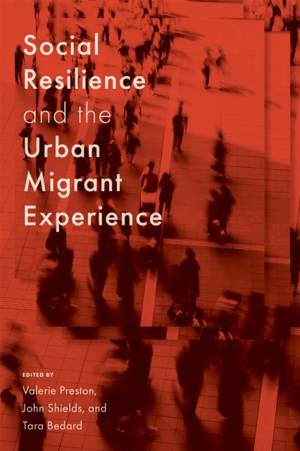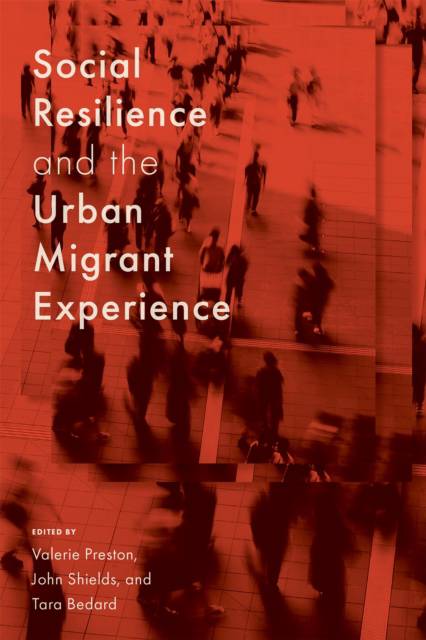
- Afhalen na 1 uur in een winkel met voorraad
- Gratis thuislevering in België vanaf € 30
- Ruim aanbod met 7 miljoen producten
- Afhalen na 1 uur in een winkel met voorraad
- Gratis thuislevering in België vanaf € 30
- Ruim aanbod met 7 miljoen producten
Zoeken
Social Resilience and the Urban Migrant Experience
Volume 21
€ 53,45
+ 106 punten
Omschrijving
As Canada takes stock of its immigration programs, the factors that promote successful settlement have taken centre stage - for researchers, service providers, policymakers, and for the migrants themselves. Social Resilience and the Urban Migrant Experience explores the conditions and supports that help international migrants thrive, not just survive. Focusing on resilience, chapters examine how immigration status and family dynamics shape migrants' agency and their responses to the inevitable challenges of building new lives. They draw attention to the issues created by societal constructs, while highlighting the resources from social institutions of all types: governmental, professional, educational, and faith-based. Emphasizing the experiences of structurally oppressed migrant groups, contributors note the varied ways that capitalism, as well as class, gender, and race, can contribute to inequality in settlement practices. Directed at a wide audience of community and government practitioners, policy experts, academics, and civil society activists, Social Resilience and the Urban Migrant Experience illuminates both the impediments to newcomer integration and the ability of newcomers to engage successfully in adaption and resistance.
Specificaties
Betrokkenen
- Uitgeverij:
Inhoud
- Aantal bladzijden:
- 288
- Taal:
- Engels
- Reeks:
Eigenschappen
- Productcode (EAN):
- 9780228026075
- Verschijningsdatum:
- 16/12/2025
- Uitvoering:
- Paperback
- Formaat:
- Trade paperback (VS)
- Afmetingen:
- 152 mm x 229 mm
- Gewicht:
- 453 g

Alleen bij Standaard Boekhandel
+ 106 punten op je klantenkaart van Standaard Boekhandel
Beoordelingen
We publiceren alleen reviews die voldoen aan de voorwaarden voor reviews. Bekijk onze voorwaarden voor reviews.







